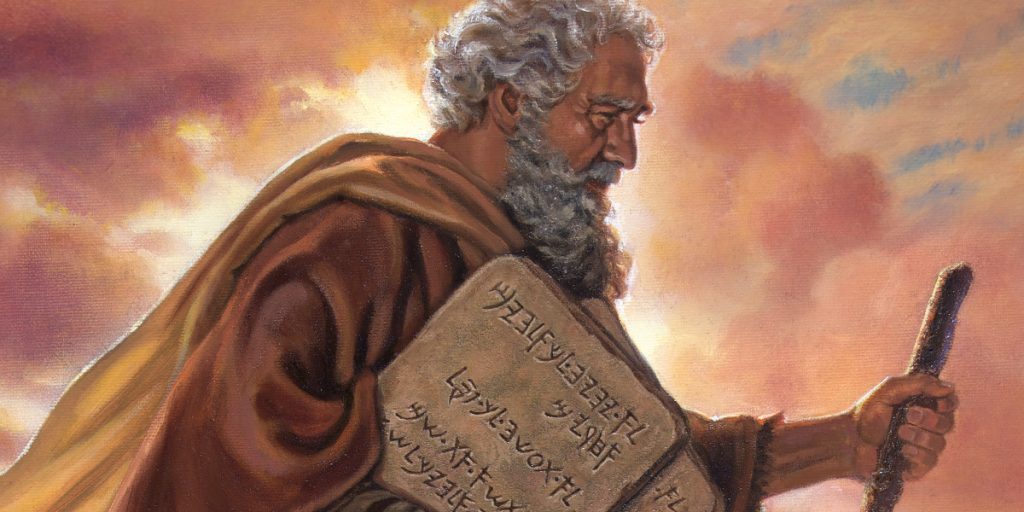How Many Verses Are in The Bible?
The Bible is one of the most influential books in human history. It is made up of sixty-six books written by different people over hundreds of years. Those who want to understand its message and meaning can find a lot of information and inspiration in it.
But how many verses are in the Bible? When all Old and New Testament books are combined, the Bible contains 31,102 verses (23,145 verses in the Old Testament and 7,957 verses in the New Testament).
In this post, we will explore how many verses are in each book and section of the Bible, who wrote the most verses in each testament, who divided the Bible into chapters and verses, and why chapter and verse divisions are important.

How Many Verses Are in the Old Testament?
The Old Testament is divided into five categories: Pentateuch, History Books, Wisdom Literature, Major Prophets, and Minor Prophets. Here’s a table listing the number of verses in each book and category of the Old Testament:
| Category | Number of Verses |
|---|---|
| Pentateuch | 5,852 |
| History Books | 7,018 |
| Wisdom Literature | 4,785 |
| Major Prophets | 4,440 |
| Minor Prophets | 1,050 |
| Total | 23,145 |
Psalms have the most verses (2,461) and Obadiah has the least verses (21) in the Old Testament.
How Many Verses Are in the New Testament?
The New Testament is divided into four or five sections: Gospels, Acts, Paul’s Letters, General Epistles, and John’s Letters and Revelation. Here’s a table listing the number of verses in each book and section of the New Testament:
| Section | Number of Verses |
|---|---|
| Gospels and Acts | 4,786 |
| Paul’s Letters | 2,033 |
| General Epistles | 602 |
| John’s Letters and Revelation | 536 |
| Total | 7,957 |
Luke has the most verses (1,151) and 2 John has the least verses (13) in the New Testament.
Who Wrote The Most Verses In The Old Testament?
The Pentateuch, which has more than a third of all Old Testament verses, has always been thought to be written by Moses.

Other prominent authors of Old Testament books include David (Psalms), Solomon (Proverbs), Isaiah (Isaiah), Jeremiah (Jeremiah and Lamentations), and more. However, no other Old Testament author comes close to writing as much as Moses did.
Who Wrote The Most Verses In The New Testament?
Paul wrote thirteen letters that makeup almost half of all New Testament verses.
Other prominent authors of New Testament books include Luke (Luke and Acts), John (John, 1-3 John, Revelation), Matthew (Matthew), Mark (Mark), and more. However, Luke wrote slightly more verses than Paul did.
Who Divided The Bible Into Chapters And Verses?
Chapter and verse divisions were not part of the original manuscripts of the Bible. They were added later by various people for convenience and reference purposes.
The division of the Old Testament into chapters is credited to Stephen Langton, an English Cardinal and Archbishop of Canterbury in the 13th century. He divided both Old and New Testament books into chapters to help readers locate specific passages quickly and easily.

The division of the Bible into verses, however, is a relatively recent development. This is credited to Robert Estienne or Stephanus, a French printer in Paris who was also a classical scholar with knowledge of Hebrew and Greek languages. He divided chapters into smaller numbered sections called “verses” for both testaments during his travels between Paris and Geneva between AD 1551 and AD 1555.

Estienne’s division of the Bible into verses was not immediately accepted, and it was not until the late 16th century that it gained wide acceptance. Today, virtually all Bible translations use verse numbers, making it easy to find specific passages and compare different translations.
While chapter and verse divisions have helped readers, scholars, teachers, and preachers to reference and study the Bible more effectively, they are not without their limitations or drawbacks.
For example, breaking up literary units or contexts can distort the meaning of a passage, and creating artificial boundaries or interpretations can lead to misunderstandings. Nonetheless, the benefits of chapter and verse divisions continue to outweigh the challenges, and they remain an essential tool for those who seek to understand the Bible’s message and meaning.
Why Are Chapter And Verse Divisions Important?
While chapter and verse divisions have been helpful reference tools for many years, they also have their limitations. One of the most significant drawbacks is that they can sometimes break up the natural flow and context of a passage, creating artificial boundaries that were not intended by the original author. This can make it difficult for readers to understand the full meaning and message of a particular text.
Additionally, different translations and editions of the Bible may have slightly different chapter and verse divisions, which can sometimes lead to confusion and inconsistencies when comparing different versions of the same passage.
This is why it’s essential to be familiar with different translations and to use them in conjunction with other reference tools like commentaries and lexicons.
Despite these limitations, chapter and verse divisions are still valuable reference tools for those studying and teaching the Bible. They can help readers quickly locate specific passages and allow teachers and preachers to structure their lessons and sermons effectively.
Conclusion
In conclusion, the Bible is a rich and complex collection of books that contains a wealth of information and inspiration for those who seek to understand its message and meaning. With over thirty thousand verses divided into sixty-six books by various authors over centuries, it can be challenging to navigate without some reference tools.
Stephen Langton and Robert Estienne’s chapter and verse divisions have been helpful tools for Christians for many years, allowing us to quickly locate specific passages and compare different translations and editions.
However, we must also be aware of their limitations and use them in conjunction with other reference tools to gain a more comprehensive understanding of the text’s message and meaning.
In conclusion, let us study and apply God’s word with diligence and devotion, seeking to understand its message and apply it to our lives. May the Bible be a source of encouragement and guidance as we seek to live according to God’s will.
| Old Testament | Number of Verses |
|---|---|
| Genesis | 1,533 |
| Exodus | 1,213 |
| Leviticus | 859 |
| Numbers | 1,289 |
| Deuteronomy | 959 |
| Joshua | 658 |
| Judges | 618 |
| Ruth | 85 |
| 1 Samuel | 810 |
| 2 Samuel | 695 |
| 1 Kings | 816 |
| 2 Kings | 719 |
| 1 Chronicles | 942 |
| 2 Chronicles | 822 |
| Ezra | 280 |
| Nehemiah | 406 |
| Esther | 167 |
| Job | 1,070 |
| Psalms | 2,461 |
| Proverbs | 915 |
| Ecclesiastes | 222 |
| Song of Solomon | 117 |
| Isaiah | 1,292 |
| Jeremiah | 1,364 |
| Lamentations | 154 |
| Ezekiel | 1,273 |
| Daniel | 357 |
| Hosea | 197 |
| Joel | 73 |
| Amos | 146 |
| Obadiah | 21 |
| Jonah | 48 |
| Micah | 105 |
| Nahum | 47 |
| Habakkuk | 56 |
| Zephaniah | 53 |
| Haggai | 38 |
| Zechariah | 211 |
| Malachi | 55 |
| New Testament | Number of Verses |
|---|---|
| Matthew | 1,071 |
| Mark | 678 |
| Luke | 1,151 |
| John | 879 |
| Acts | 1,007 |
| Romans | 433 |
| 1 Corinthians | 437 |
| 2 Corinthians | 257 |
| Galatians | 149 |
| Ephesians | 155 |
| Philippians | 104 |
| Colossians | 95 |
| 1 Thessalonians | 89 |
| 2 Thessalonians | 47 |
| 1 Timothy | 113 |
| 2 Timothy | 83 |
| Titus | 46 |
| Philemon | 25 |
| Hebrews | 303 |
| James | 108 |
| 1 Peter | 105 |
| 2 Peter | 61 |
| 1 John | 105 |
| 2 John | 13 |
| 3 John | 14 |
| Jude | 25 |
| Revelation | 404 |

Sangtea Hmar is a passionate leader of the Youth Christian Fellowship at the Electric Vengthlang Presbyterian Church in Aizawl, Mizoram, India. He is the owner of Christiantone.com and is committed to spreading the word of God. He loves to mentor youth and help them grow in their faith.






